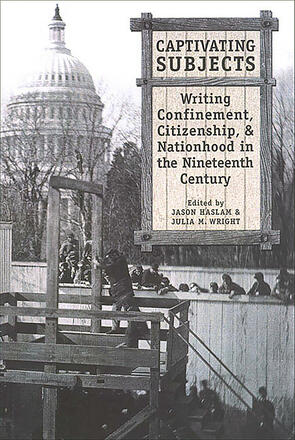
Captivating Subjects
Writing Confinement, Citizenship, and Nationhood in the Nineteenth Century
Description
Ever since Michel Foucault's highly regarded work on prisons and confinement in the 1970s, critical examination of the forerunners to the prison - slavery, serfdom, and colonial confinements - has been rare. However, these institutions inform and participate in many of the same ideologies that the prison enforces.
Captivating Subjects is a collection of essays that fills several crucial gaps in the critical examination of the relations between Western state-sanctioned confinement, identity, nation, and literature. Editors Jason Haslam and Julia M. Wright have brought together an esteemed group of international scholars to examine nineteenth-century writings by prisoners, slaves, and other captives, tracing some of the continuities among the varieties of captivity and their crucial relationship to post-Enlightenment subjectivities.
This volume is the first sustained examination of the ways in which the diverse kinds of confinement intersect with Western ideologies of subjectivity, investigating the modern nation-state's reliance on captivity as a means of consolidating notions of individual and national sovereignty. It details the specific historical and cultural practices of confinement and their relations to each other and to punishment through a range of national contexts.